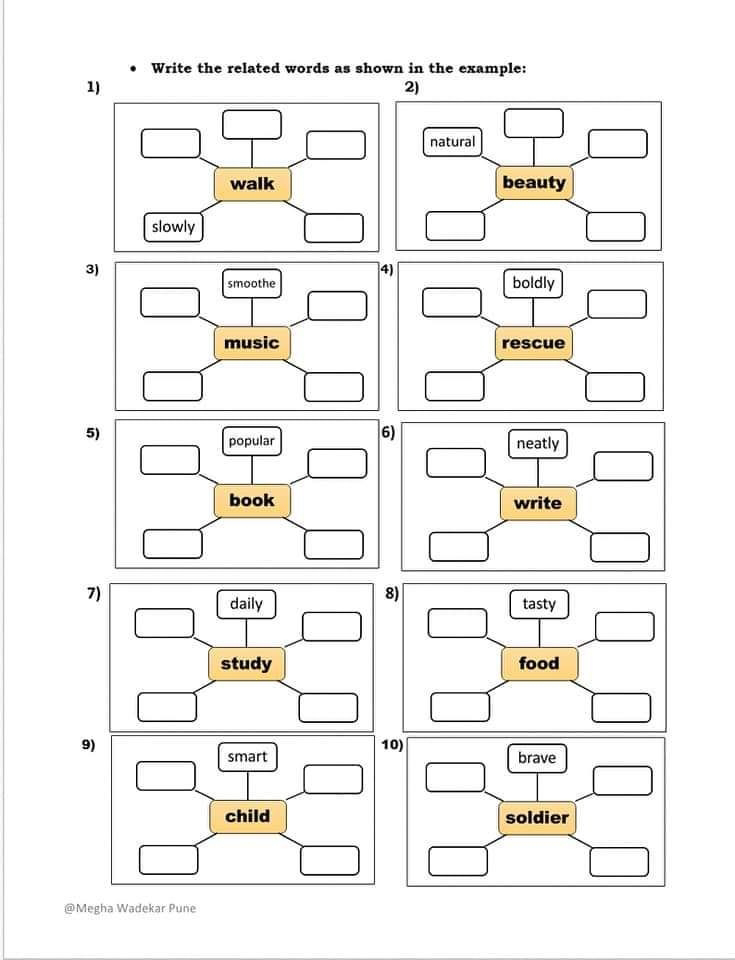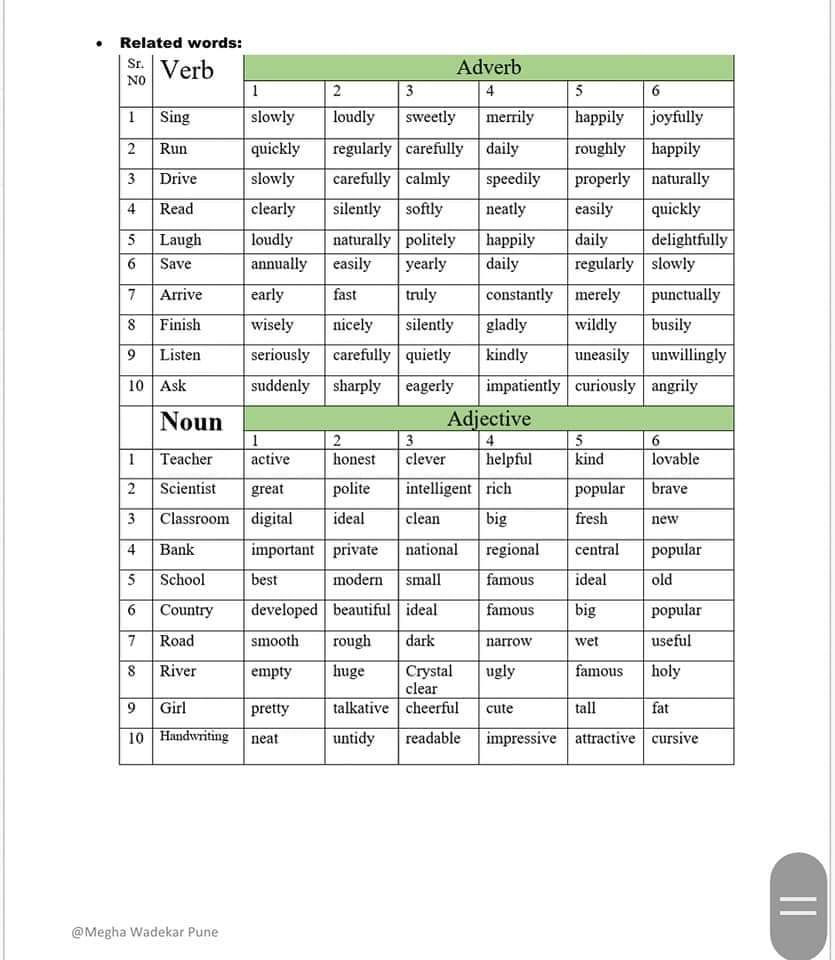English Grammar
Learn English with fun because learning is learner's duty
Related Words
Adjectives (विशेषण)
Adjectives विशेषण
Adjectives are words that give colour, shape, size, sound and feeling too noun. They paint a clear picture of the noun.
E.g. I had a red car.
1) Describing adjectives: Adjectives of quality.
Adjectives are words we used to give life and meaning too now, it shows. Kind of quality to person or a thing.
Objective of the quality answer the question of what kind?
e.g. - A famous actor, Exciting news.
A long waited, Shaggy black dog.
A large city.
Adjectives and nouns work together to give clear picture of people, places & things.
Adjectives give shape, Sights, sound, colour and feeling to the nouns.
2) Adjectives are used to describe nouns.
E.g. 1) An open window.
2) Clothes elegant and expensive.
3) Sticky fingers.
4) Sunny day.
3) Adjectives of Quantity:
Adjective shows how much of the things is meant as.
E.g. 1)some rice, 2)little intelligence, 3) sufficient rain, 4) much patience 5) enough experience 6) great care of
7) half a share off 8) whole sum 9) any rice 10) all boys 11) no sense
Adjective of Quantity answer the question-How much?
4) Demonstrative adjectives-
Points out which person or thing is meant.
This is a stronger boy than Hari.
Eg. This, That, these, those, such.
Demonstrative adjectives answers the question: Which?
5) Interrogative Adjectives: -
What, Which & Whose, when they are used with noun to ask question are called Interrogative Adjectives:-
E.g. 1) What manner of man is he?
( it will be seen that what is used in a general sense and which in a selective sense)
6) Emphasizing Adjectives:
Own and very
E.g. 1) I saw it with my own eyes
2) That is the very thing we want.
7) Number Adjectives: Numeral adjectives:-
Adjectives show number- adjectives of number gives answer the question: How many
Eg. Five sheep, two tickets, first place,
Ninety-nine rupees, Last chance
• One, two, three -Cardinals Adjectives
• First, second, third etc. – Ordinals adjectives
Few, no, many, all, some, most, several, every, either, neither, each, some, enough
8) Adjectives also show colour, size and shape
e.g. - red apples, green grass, large building, tiny ants, round table, rectangular paddock
Colour Size Shape
Crimson Mammoth Round
Purple Short Circular
Silver Huge Triangle
Golden Gigantic Square
White Enormous Oval
9) Exclamatory Adjectives:- the word ‘what’ is sometimes used as an Exclamatory adjective as
E.g. 1) What genius! 2) What jolly!
3) What an idea! 4) What a blessing!
10) Possessive adjectives: are used to show possession.
E.g. 1) This is my pen. 2) This is our pen. 3) This is your pen. 4) This is his pen. 5) This is her pen. 6) This is their pen.
by Kachhi-Wadekar Madam
Exclamatory sentence
Related Words
RELATED WORDS
Pronoun सर्वनाम
Pronoun सर्वनाम
https://youtube.com/@meghawadekar
Pronoun have different types forms-
Phrases
Phrases: A group of words, No subject verb combination, meaningless if used alone, but if used in a sentence has a unique meaning and enhance the beauty of language.
Notes-1) If the phrase start with ‘to’ then it is mostly verb phrase.
'Helping verbs’ of to be
Phrases with sentences.
Report Writing
Types of News
- Business News
- Fashion News
- Political News
- Sports News
- Crime News
- International News
- Headline (Title)
- Dateline (Day, Date, Place, Resource)
- Intro/ Leadline( Covering, Maximum 'WH' questios)
- Short Continuing Paragraph (details)
- Conclusion
Related Words
Related Words . This is the language study activity which is important to increase Vocabulary of any Language. ...

-
Kachhi -Wadekar M.S. (Educator, You Tuber & blogger) https://youtube.com/@meghawadekar http://kachhiwadekamadam.blogspot.com/2023/04/adj...
-
Report writting is one of the writing skill which is an important for exam also it gives an opportunity to the students to show their writi...
-
RELATED WORDS Kachhi-Wadekar M.S.(Educator, You tuber & blogger) meghaswadekar@gmail.com https://youtube....









